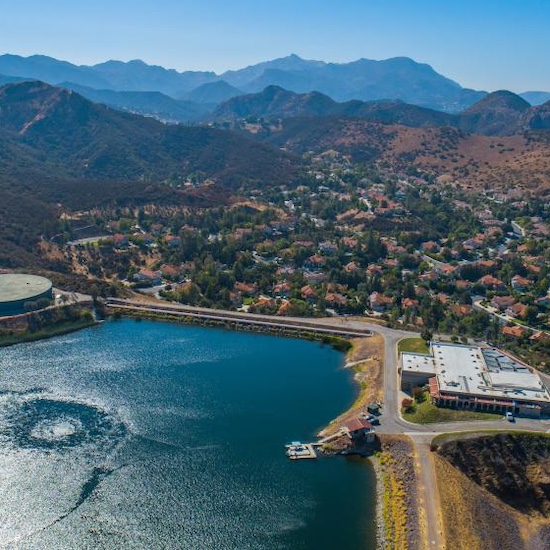Four Seaver College Researchers Partner with the Las Virgenes Municipal Water District to Assess Public Perception of Reused Water

Los Angeles is not classified as a desert, but it may as well be.
With its soaring summer temperatures and habitual fits of drought, the crown jewel of the West Coast is known for its arid climate. Water, as a result, is a valuable commodity for the second largest city in the United States. If an earthquake were to cut off the water supply feeding into L.A. today, the city would have roughly six months of H20 to live on.
This pressing concern is what drove four Seaver College researchers who recently studied psychological attitudes regarding repurposed water. Steve Rouse, professor of psychology; Janet Tramell, associate professor of psychology; Gary Bucciarelli, Pepperdine University’s senior science grant writer; and Lee Kats, Seaver College’s interim dean and Frank R. Seaver Chair of Natural Science, partnered with the Las Virgenes Municipal Water District to discover the best practices for educating the public on reusing wastewater.
In partnership with the Las Virgenes Municipal Water District, the researchers examined whether a demonstration center—a miniature version of the district’s purification plant—changed the public’s opinions about using recycled water in their daily lives.
“When a local water district introduces recycled water into its system, there's always a little bit of pushback,” says Rouse, who served as the primary author of the text. “People have this knee-jerk reaction because this is water that had been sewage but is now totally, completely pure. Can a person who's a little bit squeamish about the idea get to the point where they feel like this is a good thing?”
At the Las Virgenes Municipal Water District plant, old water is treated using microfiltration, ultrafiltration, reverse osmosis, and ultraviolet light/advanced oxidation, which removes salts, bacteria, viruses, and micro-constituents from the liquid. This technology is modeled within the recently constructed demonstration center.
“The technology is remarkably successful at making water absolutely pure,” says Rouse. “One of the engineers at the Las Virgenes water plant determined that if you were to take one drop of pure sewage and mix it into 27 Olympic-sized swimming pools, that's how pure the reused water becomes—purer than anything you've ever drunk.”
To determine the effectiveness of the demonstration, Rouse and his fellow Seaver College research team members built a test that measured how favorably or unfavorably individuals felt about the concept of reused water. Then they devised two experiments.
In the first experiment, Pepperdine students took the favorability test to determine their attitude toward recycled water. They were then led through the Las Virgenes Municipal Water District demonstration center and asked to take the test a second time to determine how their attitude may have changed as a result of learning more about the purification process.
In the second experiment, another group of Pepperdine students were divided into two groups. Group one was administered the favorability test after being led through the demonstration center. Group two was given the test to measure their attitude toward recycled water without first experiencing the demonstration center.
Throughout both of these experiments, the participants who went through the demonstration center expressed a more favorable attitude toward reused water upon emerging from the experience. This result led Rouse, Trammell, Bucharelli, and Kats to conclude that the demonstration center is an effective tool for positively swaying public opinion. The implications of this conclusion could contribute to a more sustainable future.
“Ten years ago, I decided I was done doing research that doesn't in some way make life better,” says Rouse. “I never thought that I'd have much of an opportunity to get involved in sustainability psychology. I was delighted when this opportunity came about and allowed me to serve a practical need of the local community.”
Rather than a psychology-focused periodical, Rouse and the Seaver research team published their findings in the Water and Environment Journal so that others in the hydro engineering world could learn from and make adjustments according to their exciting results. By amplifying these findings, the researchers believe more communities could address potential water crises by considering uses for reused, purified water.
“There is nothing that changes a person's feelings about a topic as much as direct experience,” says Rouse. “We are not the only community that is in need of his change. Since the technology works, the biggest roadblock is human acceptance.”